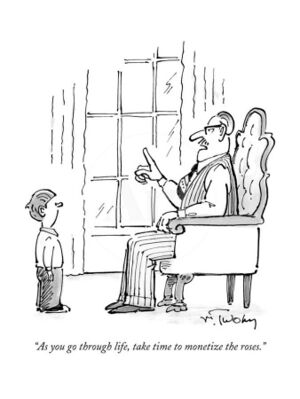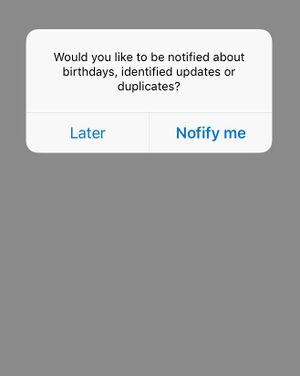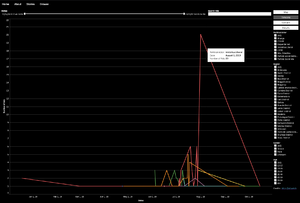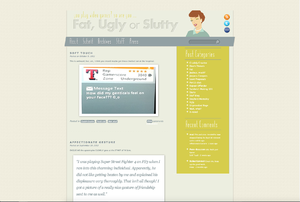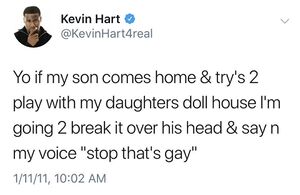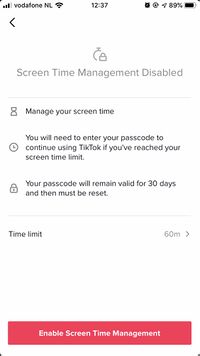User:Rita Graca/gradproject/project proposal 3
Graduation Project Proposal
Draft III, 27 October
What do you want to make? General Introduction
A tool that brings to the publishing stream actions of agency, a political tool, a "hack".
The persuasion we experience online and its effects are no longer a marketing secret, something only discussed amongst experts. Recent events, such as the Cambridge Analytica files, brought to the public realm abundant discussions about the role of social media platforms. It became clear that the prediction and control of our behaviours are valuable practices, and how bias on interfaces has the power of reinforcing or blocking personal ambitions, frustrations, fears, and dreams, allowing certain actions and ignoring others.
When Facebook sends a notification suggesting a friend, without any friend request in sight, it is persuading you to stay active on the platform. Indeed, social media only works with people online, using and exploring all elements. The retweet, for example, was a practice from the users that was later implemented as a feature in Twitter. The hyper-personalisation of everything is also an alluring technique to show you things you may want to buy, see, read, engage with. It looks like the unconscious needs are the only thing worth being tickled, leaving less room for discovery, performance and speculation.
On my thesis, I'm exploring how online platforms make the users engage in certain behaviours, and which alternatives come forth. The research on these alternatives feeds directly my project, and vice versa. In my prototypes, I'm interested in exploring the perspective of the users, possible resources, ways of allowing more active end-users, the collective voice as a potential change-maker inside and outside platforms. Several actions, movements and people demonstrate a wish for users to be heard and stay in control. It's stimulating to reverse the narrative of platforms manipulating users, to see how users can use the same features to their interest.
My public starts with my generation and the people around me, where I see the ambition to engage with social and political issues, but without the knowledge to move forward. I aim to let my public understand better what is possible to do and has been done, inside the social media apps we use every day. This to be in charge of our emotions, thoughts and information online.
How do you plan to make it?
My first goal is to grow my knowledge on actions and tools that allow this cooperative voice, especially inside big centralised platforms. Right now I'm focused on online actions that spread quickly through trending topics, memes, hashtags, influencers. An example of these phenomena is "cancel culture".
Cancel culture happens when a mediatic figure does something unacceptable in the eye of the public and therefore becomes "cancelled". This usually means a viral reaction in social media, loss of followers, sponsors, or other ways of online punishment. This movement is perhaps harmful because it jumps quickly on assumptions without leaving room for improvement or forgiveness, however it is a relevant example of how users come together and impose their opinions over bigger voices. It's a way of gaining control on who is heard and who is silenced, instead of letting gatekeepers do it for them. The popularity of the hashtag #metoo would be another good example of how users regain agency over an authoritative identity, in this case over the male oppressive voice. It acknowledges the importance of using social media to write your narrative and to make such narratives included in the publishing stream.
I intend to interact with these practices through the prototyping of some social media low-tech experiments. Low-tech solutions are appealing because they unpack a lot of difficult concepts without pilling up on very specific knowledge. I'm starting with chatrooms, exploring twitter bots, lurking into APIs. I want to do this to document the existence of these movements, but also to engage with them. Without wanting to distribute a feasible alternative, I would like to use technology as a reflexive tool and to play with its poetic expressions.
In terms of archiving and documenting, I intend to grow, but also filtrate, my practice of collecting existing projects. This helps me understand my purpose, get to know similar works and expand my interests. I began dividing my findings into two categories: the first collects tools, proposals of activism, hacktivism and research platforms. Here there is an emphasis on the user. The second section overviews more artistic practices where the user shifts to being the observer. When I was starting this research I understood that I aim to build a utilitarian concept, leading towards the "Active" section. While talking about social media platforms it only makes sense to acknowledge the user, only this way I can talk about gaining control.
What is your timetable?
September, October — Ground my interests, make clear what I want to work on by researching and finding projects. Fast prototyping.
November, December — Thesis outline and Project Proposal is written so my scope is set. Have a more specific direction for the prototypes. Follow it.
January — Allow the feedback from the assessment and the break to feed new inputs to the project. Adjust and continue.
February, March — Put my prototypes together to create a bigger platform, the project will expand from small experiments to a combined project.
April, May — Written thesis is delivered. Focus on the project. Test my prototypes, perform them or put them online.
June, July — Finish everything: conclusion of the final project. Prepare the presentation.
Why do you want to make it?
Feels urgent: Social media plays a big role in how we form our identity. Through the curation of memories, the materialisation of our network of friends, reinforcement of our social worth through demetrication. How it supports passions and dislikes, even how we behave outside the web when we do things to look back at them later. When we navigate these networks if we are being manipulated to feel and act in particular ways, only allowing and upvoting singular views of the world, this is what is disseminated and eventually what shapes our character.
Feels contemporary: The users have been demanding more reliable platforms and the companies picked out the trend by providing some changes. In April TikTok added two new features to promote a safer app experience, “Screen Time Management” and “Restricted Mode”. In July Instagram tested hiding its likes in several countries to benefit their users’ experience. Youtube promised to release soon new features that will allow people to know why a specific channel is being recommended in an attempt to be more transparent with their algorithms. It’s true that the real effects of these features are debatable and also part of well-thought marketing strategies. However, they show the audience is engaging with this type of discourses.
Feels like I can join the conversation: We shouldn't engage with ideas that manifest with dubious intentions, even if they come from the gatekeepers of mainstream, well-known social media platforms. But sometimes is difficult to put in practice actions of power. I find it hard to do it myself, but by understanding and making clearer how things happen, I can be more adventurous in my practice.
Who can help you and how?
Marloes de Valk, because of her knowledge on persuasive design, especially with the connection with Impakt festival. The Impakt festival itself can stimulate my research, the programme for this year is called "Speculative Interfaces" and it will investigate the interaction and relationship between technology and humans, and how this relationship can alter behaviours. I will attend two days of the festival.
Past Xpub students like Lucia Dossin and Lídia Pereira, which have work on similar topics.
Joana Moll and Femke Snelting, with the connection with Critical Interface Toolbox. This is a year-long research full of useful resources, including the Critical Interface Toolbox and also related to the Interface Manifesto.
Olia Lialina, an artist with a lot of work on web interfaces. I will participate in her workshop in November, which explores early web pages through the interface of The GeoCities archive, approximately 382,000 home pages.
Xpub staff and students, for the variety of useful input.
Relation to previous practice
I understand that design shapes our ability to access, participate in, and contribute to the world (Holmes, 2018). As a graphic designer myself, I always had interested in the biases we implement in the things we build, especially when those determine who can engage and how they do it.
Last year we discussed decentralised networks on Special Issue 8 and this build up my interest in the subject. I understood how creating new platforms and looking for alternatives reveals the desire for bottom-up changes and more active end-users. It became clear that centralised models of technology propagate limited ideas, and those ideas shape our society. As a project for that same Special Issue, I prototyped some tools that helped me visualize the ideas I was discussing. To turn the research into tools that other people can use, to turn the passive viewer into an actor, is something that I intend to continue for this final project.
Relation to a larger context
Software is so inbuilt in our lives that sometimes it's hard to unravel that black box. But the more we integrate these technologies into our daily lives without questioning, the more they build upon assumptions, bias, discrimination. The assumption that we don’t care about our privacy, that we are fine being treated as commodities, about being pushed to be online and active all the time, about being emotionally manipulated, being tricked to believe specific news and “facts”, and many others. At the same time, the increasing automation of our systems means even less control and less accountability. Social media platforms put in practice a lot of these same premises every day, spreading its beliefs to billions of people. The demand for transparency becomes important outside the tech world.
References

